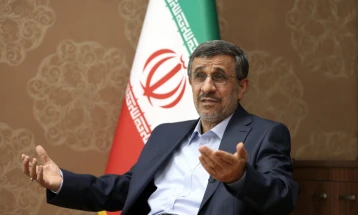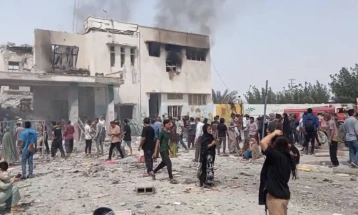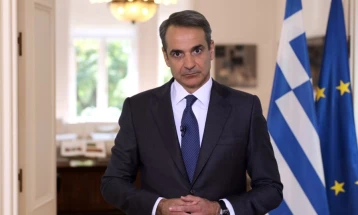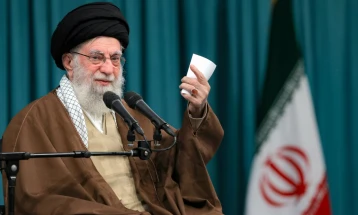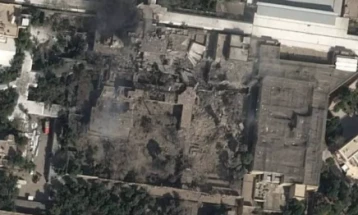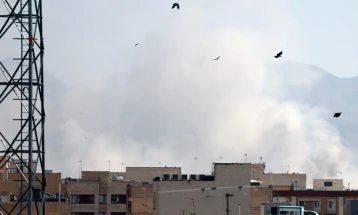Long-sought climate compensation fund agreed at COP27 in Egypt
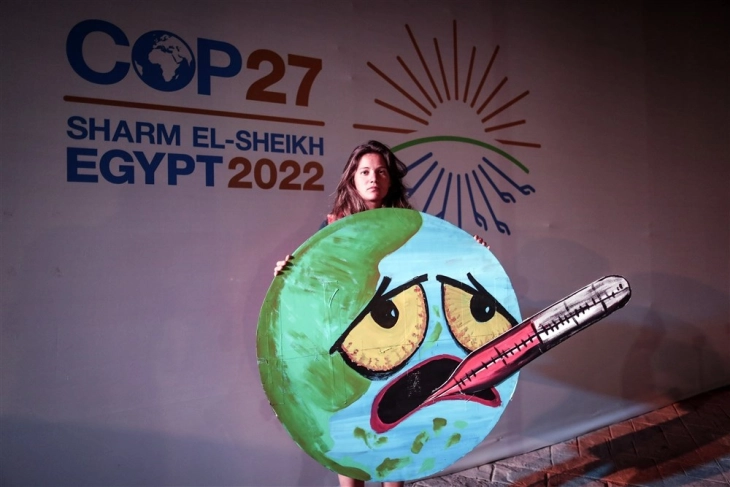
Sharm el-Sheikh, Egypt, 20 November 2022 (dpa/MIA) – Negotiators at a global climate conference in Egypt on Sunday agreed to create a long-sought fund to compensate climate-vulnerable countries.
The payment of reparations to poorer countries for damage caused by climate change was one of the thorniest issues at the the two-week conference.
The agreement is seen as a big win for low-income countries that often bear the impacts of climate change though they have contributed the least to causing it.
The approval of the funding came at a final plenary session and drew applause from delegates.
The conference, known as COP27, also saw delegates ratify a final declaration during a session that ran into the early hours of Sunday in Egypt's coastal resort of Sharm el-Sheikh.
The decision to create the climate damage fund drew instant praise.
UN chief Antonio Guterres said it was an important step towards justice.
“I welcome the decision to establish a loss and damage fund and to operationalize it in the coming period,” he said in a video recording posted on his Twitter account.
“Clearly this will not be enough, but it is a much-needed political signal to rebuild broken trust,” he added.
UN Climate Change Executive Secretary Simon Stiell called the COP27 outcome “historic.”
Egypt’s Foreign Minister Sameh Shoukry, the conference’s president, told delegates the outcome was a testament to the fact that “multilateral diplomacy still works.”
Pakistan's Climate Minister, Sherry Rehman, said
the fund was "a down payment in the investment in our joint future."
Pakistan experienced devastating and deadly floods this year.
The European Union's top climate official Frans Timmermans was critical of the outcome, however.
"What we have in front of us is not enough of a step forward for people and the planet," he told the final session.
He added that the outcome does not address the "yawning gap between climate science and our climate policies."
Referring to cuts in greenhouse gas emissions, Timmermans said, "The EU came here to get a strong language agreed and we are disappointed we didn't achieve this."
The creation of the fund was an "important" step for rebuilding trust with vulnerable countries, the president of environmental think tank World Resources Institute, Ani Dasgupta, said.
“In a historic breakthrough, wealthy nations have finally agreed to create a fund to aid vulnerable countries that are reeling from devastating climate damages," Dasgupta said.
"This loss and damage fund will be a lifeline for poor families whose houses are destroyed, farmers whose fields are ruined, and islanders forced from their ancestral homes."
Developing countries have long pressed for the creation of a financial mechanism to address climate-induced harm in low-income countries.
The decision to set up the fund was a “landmark,” according to the Climate Action Network (CAN), a grouping of NGOs.
“This is a first step in a process to rectify the systemic injustice to billions of people, particularly in the Global South, who are the least responsible but are on the frontlines of the climate crisis,” CAN said in a statement.
In the final declaration, nearly 200 countries reaffirmed an earlier decision to phase out coal, a climate-harming fossil fuel. However, no mention was made of oil and gas in the document.
The omission comes despite calls from several countries and pro-enviroment activists to phase out the use of all fossil fuels that produce large amounts of heat-trapping carbon dioxide.
The use of fossil fuels was a bone of contention at the two-week conference.
The meeting had been due to conclude on Friday, but was extended into Sunday amid sharp divergence on major issues.
The UN-led talks were held amid geopolitical tensions and multiple global crises. The event also comes amid major climate disasters in several parts of the globe.
The United Arab Emirates will host next year’s COP28.
